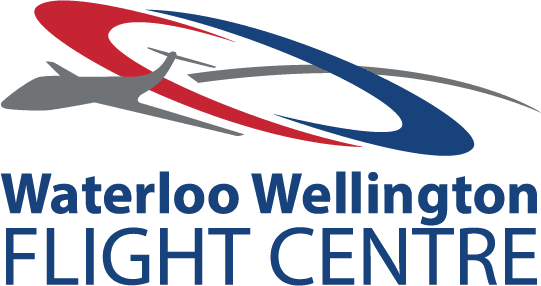ATP Program
ATP Program Overview
Your Career as a Professional Airline Pilot Starts Here
The Integrated Airline Transport Pilot Licence (ATPL) Program at WWFC is designed for students with little to no flight experience who want to fast-track their path to a career as an airline pilot. Over 18–24 months, you'll receive the comprehensive training needed to earn your Commercial Pilot Licence, Group 1 Instrument Rating, and satisfy the knowledge requirements for the ATPL.
This is the highest level of aircraft pilot licence and is required to serve as the captain of a multi-crew airline aircraft.
QUALIFICATIONS
- Be at least 17 years old at the start of the program and 18 by its conclusion, adhering to regulations set forth by Transport Canada and Private Career Colleges.
- Successfully completed Canadian high school education, meeting or exceeding Canada's academic standards, including at least one university/college-level Grade 12 math course and one university/college-level Grade 12 physics course.
- Read and write English up to at least a Level IV ICAO English Language Test Level
- Must be a Canadian citizen or hold permanent residence status
- Valid Category 1 Medical Certificate
- No previous flying experience necessary
- NOTE: Kindly be advised we are not accepting International Students at this time.
What is an ATPL?
Program Highlights
-
Full-time, 18–24 month program
-
12 six-week training modules
-
750 classroom hours
-
205 flight hours
-
50+ hours in fixed-base simulator
-
Transport Canada approved
-
Recognized under the Ontario Career Colleges Act, 2005 (#105919)
What You’ll Learn
You’ll progress through each phase of professional flight training in a logical, well-structured sequence:
-
Private Pilot Licence
-
Night Rating
-
Cross-Country Experience
-
Commercial Licence Flight Test
-
Multi-Engine Rating
-
Group 1 Instrument Rating
-
Multi-Crew Cooperation Training
The program concludes with a Multi-Crew Coordination (MCC) module in a simulator environment that replicates airline operations, preparing you for real-world flight deck teamwork.
Multi-Crew Cooperation Training
In this capstone module, you’ll develop essential crew-based competencies, including:
-
Flight deck communication and collaboration
-
Use of checklists and SOPs
-
Flight Management Systems (FMS) operation
-
Monitoring, cross-checking, and error management
-
Workload and resource management
Classroom Training
Classroom instruction is delivered through:
-
Flight Management Courses – In-depth theory and knowledge for Transport Canada exams
-
Flight Lab Courses – Hands-on learning to complement flight and simulator training
Courses are organized by training level:
-
100 Level – Private Pilot Licence
-
200 Level – Commercial Licence
-
300 Level – Multi-Engine & Instrument Ratings
-
400 Level – ATPL & Airline Operations
ATPL Knowledge, Experience & Skill Requirements
To apply for an ATPL, you must meet three key requirements:
Knowledge
Pass two Transport Canada exams:
-
SAMRA – Meteorology, radio navigation, flight planning
-
SARON – Air law, flight operations, general navigation
Integrated ATPL students write these exams before graduation.
Experience (Post-graduation flight time may still be needed)
-
1,500 total flight hours
-
250 hours Pilot-in-Command (PIC)
-
100 hours PIC cross-country
-
100 hours night (PIC/co-pilot)
-
75 hours instrument (max. 25 in a simulator)
Skill
Complete a valid Group 1 Instrument Rating (IR) flight test within 12 months of applying for your ATPL. Most graduates will need to renew this flight test to meet Transport Canada’s experience timelines.
Program Cost & Schedule
-
Tuition: Approx. $80,000–$90,000 CAD (includes taxes, fees, and exam costs)
-
Start Dates: Spring & Fall
-
Duration: Typically 18–24 months, depending on flight hour completion
Important Information
-
No Credit for Prior Training: All students must begin from the PPL phase. Up to 30 hours may be credited for holders of a completed PPL.
-
A Medical Requirement: A valid Category 1 Medical is required for the application process.
-
Workload: Due to the program’s intensity, students are discouraged from working more than 20 hours per week.
Frequently Asked Questions
Can I work while completing the program?
The program is intensive. Working more than part-time (20 hrs/week) is not recommended.
Can I use previous flight training toward this program?
No. This is an integrated training program that requires you to begin from the start, though up to 30 PPL hours may be credited.
Do I automatically get in once I apply?
No. All applicants must complete an admissions interview and meet entrance requirements to be accepted.
Will I be airline-ready when I graduate?
Yes, you'll have completed the training required to work for an airline. Additional flight time must be logged to qualify for the ATPL.
Does WWFC offer financial aid?
No. Students are responsible for securing funding before starting flight training.
Are application fees refundable?
No. All application fees are non-refundable.
Do I need to live near WWFC?
Yes. Living nearby is highly recommended to avoid training delays due to travel.
Is This Program Right for You?
We invite you to join one of our monthly Information Sessions (September–June) to learn more about the program, admission requirements, and next steps.
APPLICATIONS ARE NOW OPEN FOR THE AUGUST INTAKE.
Interested in joining our upcoming program? All applicants must complete a screening interview and receive formal acceptance from our Admissions team. Please reference our Application Guide for more information on our application process.
Note: There is a $230 ATPL application and AON Testing Fee.
Important Dates:
-
Application Deadline: July 4, 2025
-
Orientation: July 31, 2025
-
First Day of Class: August 5, 2025
We look forward to reviewing your application and welcoming you to the program!
Note: Due to recent changes in government regulations and updated Ontario Career College requirements, we are currently unable to accept International students at this time.
Sorry. This form is no longer available.
